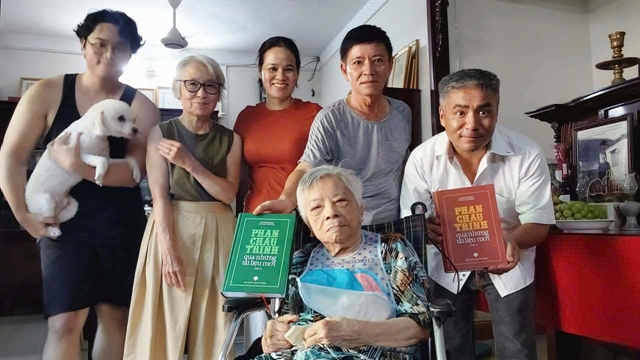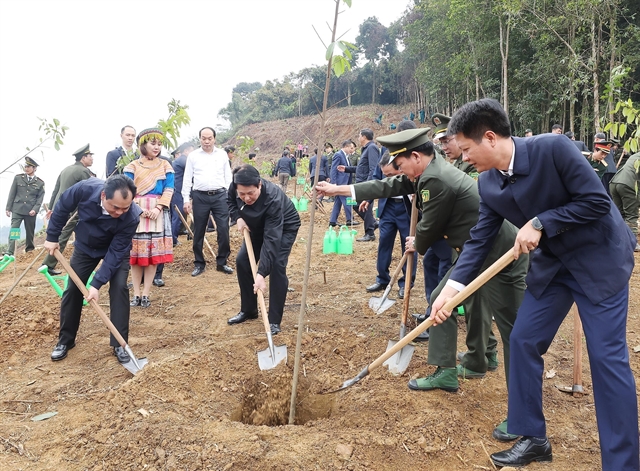 Society
Society

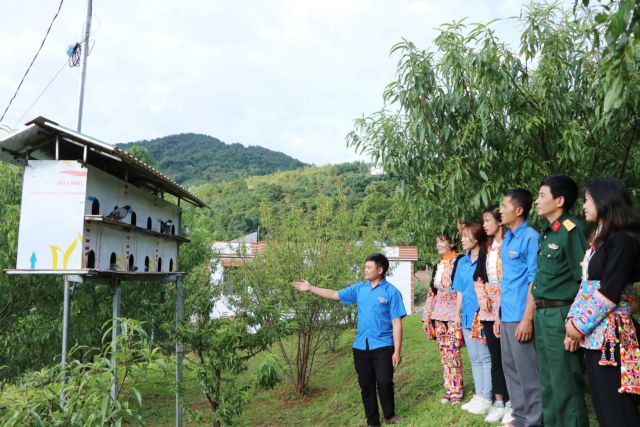 |
| A young volunteer from Defence Economic Unit 356 in the northern province of Lai Châu tells people about pigeon farming. — VNA/VNS Photo Đinh Thuỳ |
LAI CHÂU — With a passion for farming, young intellectual Cứ Thị Say, a woman from the Mông group in the northern mountainous province of Lai Châu, cherishes the dream of helping local people escape poverty.
Early this year, Defence Economic Unit 356 selected Say in Phong Thổ District's Đào San Commune, to become a young volunteer to reach people in the district's most disadvantaged communes and help them boost economic production.
Say enthusiastically participated in the activities. Recently, she has been assigned to work as a team leader in the Ngọc Linh ginseng growing model.
Say said that slugs ate ginseng sprouts in the early days of implementing the model, but she and other volunteers spent time finding out the causes and learning from it.
Currently, the number of live ginseng plants is increasing, Say said, adding that she hoped Ngọc Linh ginseng would soon be grown more widely.
"We want to provide seeds for more and more people, and ginseng farming to become a key crop for economic development here," Say said.
Another volunteer Lý Gạ Che from Hà Nhì ethnic group in Mường Tè District said that she has twice joined a voluntary programme by the Defense Economic Unit 356.
Between 2018 and 2020, Che raised black boned chicken, growing turmeric and teaching children at Tả Chải Village, Sì Lở Lầu Commune, Phong Thổ District.
This year, Che and other young intellectuals volunteered to implement the model of commercial quail farming and chilli cultivation.
"Chilli is an easy-to-grow, easy-care plant. Chilli farming requires little investment, little time, and its selling price is high now, over VNĐ200,000 per kilo," Che said.
Say and Che are among 150 young people who volunteered to join a programme organised by Defense-Economic Unit 356 to support people in seven border communes with extremely difficult difficulties in Phong Thổ District, including Sì Lở Lầu, Vàng Ma Chải, Mồ Sì San, Pa Vây Sử, Tung Qua Lìn, Dào San and Mù Sang, which share more than 63km of border with Yunnan Province of China.
The communes are home to six ethnic groups living together - Mông, Dao, Hà Nhì, Kinh, Mường, and Thái.
People there have struggled to lead their lives due to geographical difficulties and underdeveloped infrastructure, especially a lack of roads to remote villages in the rainy season.
Low education levels, backward customs and practices, and slow socio-economic development greatly hinder the communes' development.
The then Prime Minister's Decision No 174/QĐ-TTg dated January 2010 gave the go-ahead for the project on sending young intellectuals to economic defence zones in the 2010-20 period.
Circular No 92/2010 TT-BQP of the Ministry of National Defence regulated the organisation of management and administration of the project. From 2010 to now, the Economic - Defence Delegation 356 has received six batches of young intellectuals volunteering with 150 members.
From the beginning of April 2022, Union 356 has sent 25 young intellectuals volunteering to work at the most disadvantaged communes in Phong Thổ District.
Senior Lieutenant Colonel Lê Văn Trường, Deputy Political Commissar of Economic - Defence Union 356, said that to implement the project with the highest efficiency, the unit established Project Management Board 174 and recruited intellectuals.
The selected young intellectuals all have professional qualifications and have been trained at vocational schools, colleges and universities, Trường said.
The volunteers were given food, accommodation and further training so that they could soon catch up with the work and get along with the local people, Trường said, adding that leaders of the unit regularly paid attention to the intellectuals.
After only a few months, the volunteers have left deep impressions in the hearts of the local people.
Initially, they volunteered to implement economic development models, including nursing and planting 2,560 seedlings of Ngọc Linh ginseng, planting 1,000sq.m of black ginseng, 8,000sq.m of turmeric, 650 ornamental peach trees, and pigeon farming.
These are all promising crops in terms of product output and prices because they can be used as medicinal herbs, food or ornamental plants.
Xảy A Xảo, a local farmer from the Mông ethnic group in Pờ Sa Village, Pa Vây Sử Commune, said that his family was so poor that he had no money to start a business.
Fortunately, recently, he visited the Economic - Defense Unit 356 and learned about turmeric cultivation from the volunteers.
Xảo was given 200kg of turmeric root for free and told about farming techniques. The plants were growing very well, and the crop should help his family escape poverty.
The volunteers donated over 10,000 sets of clothes, 250 boxes of instant noodles, and 50 boxes of milk to students and families in difficult circumstances.
They helped local farmers plant crops and overcome the consequences of natural disasters, and ensure smooth road traffic.
Lieutenant Colonel Nguyễn Quốc Toản of the No 1 Production and Political Base Construction Team, Economic - Defence Unit 356, said that volunteers were energetic, enthusiastic, and responsible at work.
They also taught the Mông language to officials and employees in the unit so that State employees could better communicate with residents. — VNS

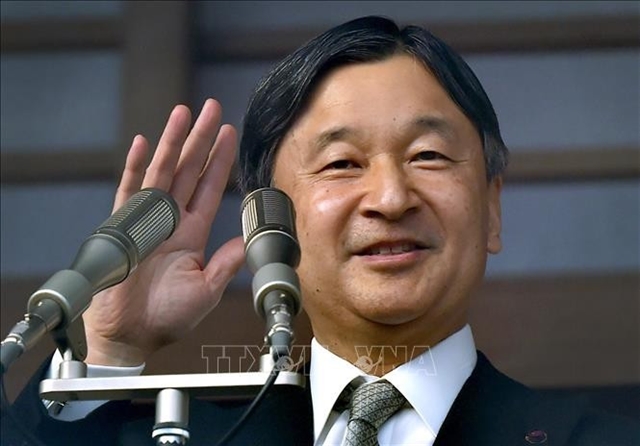
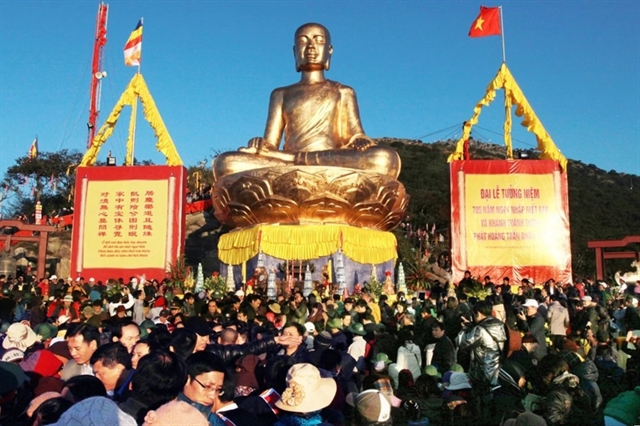
_med.jpg)
